Personal Data
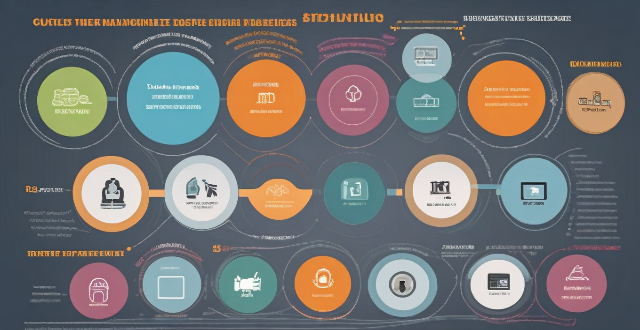
What are some common ways that companies collect and use personal data ?
Companies employ various direct and indirect methods to collect personal data, which they then use for marketing, product development, enhancing customer experiences, and ensuring security.

How can I control who has access to my personal data ?
How can I control who has access to my personal data? To control who has access to your personal data, it's important to: 1. Understand what personal data you have and where it is stored. 2. Review privacy policies and settings of websites and apps you use regularly. 3. Use strong passwords and two-factor authentication to protect your accounts. 4. Limit the amount of personal data you share online. 5. Regularly review and update your privacy settings. By taking these steps, you can help protect your personal data from unauthorized access and ensure that it remains private.

How do data protection regulations handle sensitive personal data ?
Handling sensitive personal data under data protection regulations requires strict adherence to principles such as consent, minimization, purpose limitation, and security. Regulations like the GDPR in the EU, CCPA in the US, and PIPEDA in Canada impose specific conditions for processing sensitive information. Organizations must adopt best practices including assessment, privacy impact assessments, employee training, access controls, and monitoring to ensure compliance and protect individuals' privacy rights.
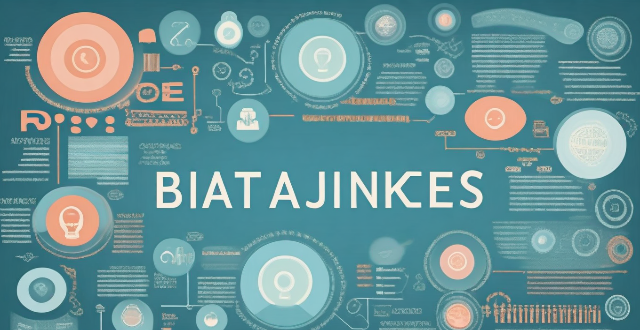
What is the difference between data privacy and data protection ?
The text discusses the difference between data privacy and data protection, emphasizing that understanding these concepts is crucial for managing personal information responsibly. Data privacy focuses on individual rights to control personal information, while data protection emphasizes organizational measures to safeguard that information. Both are essential for building trust and ensuring responsible data handling.

Can you explain the concept of 'data minimization' in data protection laws ?
Data minimization is a crucial principle in data protection laws that requires organizations to collect and process only the minimum amount of personal data necessary for specified, explicit, and legitimate purposes. This concept aims to protect individuals' privacy by limiting the potential harm that can result from the misuse or breach of their personal information. Key aspects of data minimization include collection limitation, purpose specification, data retention, data security, and accountability and transparency. Implementing robust security measures is crucial to ensure the confidentiality, integrity, and availability of personal data. Adhering to data minimization principles helps organizations comply with various data protection laws, fosters trust between individuals and organizations, reduces the risk of privacy breaches and violations, mitigates potential damage caused by cyberattacks or data breaches, and leads to cost savings for organizations due to reduced storage requirements and associated management costs.

What are the rules regarding data breaches under data protection regulations ?
Data protection regulations have been established to ensure the confidentiality, integrity, and availability of personal data. These regulations set out specific rules regarding data breaches that must be followed by organizations that handle personal data. The key rules regarding data breaches under data protection regulations include notification of data breaches, mitigating their impact, record-keeping and reporting, penalties for non-compliance, and best practices for preventing data breaches. By adhering to these rules and implementing best practices, organizations can reduce the risk of data breaches and protect individuals' personal data.

What are the legal requirements for data privacy ?
Data privacy is a fundamental right that ensures the protection of personal information from unauthorized access, use, or disclosure. The legal requirements for data privacy vary by country and jurisdiction, but there are some general principles that most countries follow, such as consent, limited purpose, transparency, security, onward transfer, and rights of the individual. Examples of legal requirements in different countries include the Federal Trade Commission Act, Gramm-Leach-Bliley Act, Health Insurance Portability and Accountability Act in the United States; the General Data Protection Regulation in the European Union; and the Personal Information Protection and Electronic Documents Act and Personal Health Information Protection Act in Canada.

How do companies collect and use my personal data online ?
Companies collect and use personal data online for various purposes, including marketing, advertising, customer service, and improving their products or services. They do this through cookies and tracking technologies, social media platforms, email marketing, and customer service interactions. By analyzing this data, companies can gain insights into user behavior and preferences, which they can use to improve their products or services and target users with personalized advertising.

What is data privacy ?
Data privacy is the protection of personal information from unauthorized use. It's important for individual rights, building trust, legal compliance, and risk mitigation. Principles include data minimization, anonymization, encryption, transparency, consent, access control, retention, integrity, and accountability. Best practices involve regular audits, employee training, updating policies, secure systems, and response plans for data breaches.

What role do data protection officers play under data protection laws ?
Data protection officers (DPOs) are crucial for ensuring compliance with data protection laws in organizations. They advise on compliance, develop policies, ensure adherence to regulations, educate stakeholders, and act as a point of contact for personal data requests.

Why is data privacy important ?
Data privacy is crucial in the digital age, protecting individuals and benefiting organizations. It ensures control over personal information, prevents misuse, and builds trust. Organizations mitigate risks, gain customer loyalty, and comply with laws by prioritizing data privacy. Key principles include transparency, individual control, data minimization, and security measures. Data privacy will continue to shape the relationship between individuals and technology, balancing innovation and privacy rights.
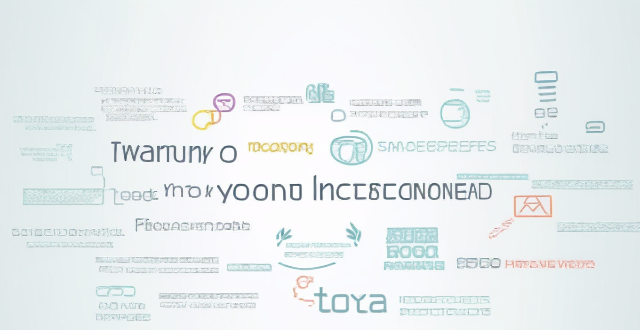
How can I protect my personal information online ?
In today's digital age, protecting your personal information online is crucial. To safeguard sensitive data, one should use strong and unique passwords, keep software and systems up-to-date, be careful with public Wi-Fi networks, be wary of phishing attacks, and limit the amount of personal information shared online. These steps can significantly reduce the risk of having personal information compromised online.

What are the consequences of a data breach ?
This text discusses the consequences of a data breach, including financial losses, loss of trust, reputation damage, and regulatory fines. It also highlights the long-term impact on business, legal implications, and personal impact such as identity theft and emotional distress. The text suggests mitigating measures such as implementing strong security measures, training employees, having a response plan, regularly updating systems, limiting access to sensitive data, backing up data, and insuring against data breaches.

How can I protect my personal data privacy ?
In the digital age, protecting personal data privacy is crucial. To enhance privacy, use strong and unique passwords, enable two-factor authentication, keep software up-to-date, be cautious with public Wi-Fi, monitor your online presence, use antivirus and anti-malware software, educate yourself about phishing scams, and control app permissions. Staying vigilant and informed is key to safeguarding your online privacy.

Can blockchain technology improve data security and privacy ?
Blockchain technology has been touted as a revolutionary tool that can improve data security and privacy. Its decentralized nature, encryption, and transparency make it difficult for attackers to compromise the network. Additionally, its anonymity, control over personal data, and smart contracts enhance privacy by giving individuals more control over their information.

Why is data encryption important for online security ?
Data encryption is crucial for online security, protecting dataData encryption is crucial for online security, protecting data the financial impact of breaches It has evolved from ancient uses to a critical tool in today's digital landscape, with AI optimizing key management and enhancing algorithms.
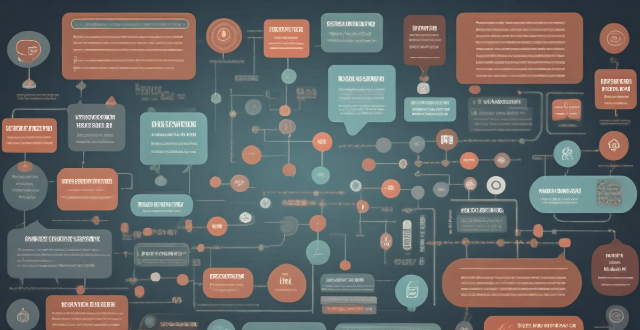
How do data protection regulations impact marketing strategies ?
Data protection regulations significantly impact marketing strategies by dictating how companies can collect, store, and use personal information. Marketers must adapt their strategies to comply with these regulations while achieving business objectives. Key areas affected include obtaining explicit consent for data collection, minimizing data collection, providing individuals with the right to access and erasure of their data, ensuring robust data security measures, and being aware of restrictions on international data transfers. By adhering to these requirements, marketers can build trust with consumers and maintain a positive brand image in today's data-driven world.

What are the key principles of data protection legislation ?
Data protection legislation is designed to ensure that personal information is processed in a fair, transparent, and secure manner. The key principles of data protection legislation include: 1. Fairness, which involves transparency, purpose limitation, and data minimization. 2. Lawfulness and transparency, which require explicit consent and clear information about data processing. 3. Purpose limitation, which requires that data be collected for specific purposes and not further processed incompatibly. 4. Data minimization, which requires collecting only necessary data and retaining it only as long as necessary. 5. Accuracy, which requires keeping data up-to-date and correcting inaccuracies promptly. 6. Storage limitation, which requires not keeping data longer than necessary and storing it securely. 7. Integrity and confidentiality, which require appropriate security measures and ensuring confidentiality and privacy. 8. Accountability, which requires data controllers to ensure compliance with data protection principles and document their activities. By following these principles, organizations can protect individuals' privacy and build trust with their customers while complying with legal requirements.

What is the General Data Protection Regulation (GDPR) ?
The General Data Protection Regulation (GDPR) is a comprehensive data privacy law that governs how personal information is collected, processed, and stored by organizations within the European Union (EU). It was designed to protect the rights of individuals and ensure their personal data is handled securely and transparently. Key features of GDPR include data minimization, consent, transparency, data portability, right to erasure, data protection officers (DPOs), and penalties for non-compliance. Benefits of GDPR compliance include enhanced trust between organizations and customers, risk mitigation through strong data protection measures, competitive advantage in the EU market, and increasing global relevance as other countries adopt similar laws. Challenges of GDPR compliance include complexity, cost, cultural differences leading to confusion and potential non-compliance, and technological limitations. In conclusion, the General Data Protection Regulation (GDPR) is a crucial piece of legislation that aims to protect the privacy rights of individuals within the European Union. While it presents both benefits and challenges for organizations, compliance with GDPR has become an essential aspect of modern business operations in today's digital age.
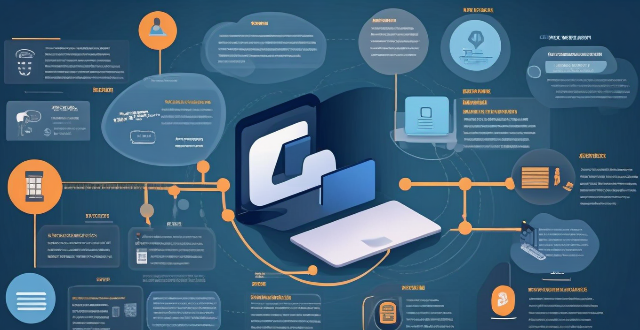
How do data protection regulations apply to social media platforms ?
This article discusses the crucial role of data protection regulations in safeguarding user information on social media platforms. It outlines key principles such as transparency, purpose limitation, and accountability that guide the handling of personal data by these platforms. The responsibilities of both social media platforms and users are highlighted, emphasizing the importance of informed consent, security measures, and user control. The article concludes by stressing the mutual responsibility of platforms and users in promoting a safe online environment through adherence to data protection regulations.

What is online privacy and why is it important ?
The text discusses the definition and importance of online privacy, which is the ability to control personal information when using the internet. Online privacy protects sensitive data such as browsing history, location, communications, and personal details from being accessed, collected, or used without consent. It is important for protecting personal information, allowing control over personal data, enabling freedom of expression, building trust in digital services, and ensuring economic benefits. Best practices for online privacy include using strong passwords, keeping software up-to-date, being cautious on social media, avoiding public Wi-Fi, reviewing privacy policies, and monitoring financial statements for signs of fraud or identity theft.

What are the benefits of using data encryption in business ?
Data encryption in business offers protection of sensitive information, compliance with legal requirements, enhanced customer trust, defense against cyber threats, and controlled data access. It ensures confidentiality and integrity of communications, helps meet regulatory standards, safeguards personal data, builds customer confidence, mitigates risks of data breaches, guards against malware and ransomware, provides role-based access control, and simplifies key management. This makes encryption an essential tool for securing digital assets and strengthening a company's market position.

What are some examples of data breaches and how do they affect individuals ?
Data breaches have become a pervasive issue in the digital age, affecting millions of individuals worldwide. These incidents can compromise sensitive information and have far-reaching consequences for those affected. In this discussion, we will explore some notable examples of data breaches and examine how they impact individuals.

How do data protection regulations apply to cloud computing services ?
**Data Protection Regulations in Cloud Computing Services** Data protection regulations govern the collection, storage, processing, and transmission of personal information to protect individuals' privacy rights. These regulations apply to all organizations that process personal data, including those offering cloud computing services. Cloud service providers must ensure their services meet specific requirements under data protection regulations, such as data minimization, security, transparency, portability, and accountability. The application of these regulations to cloud computing services enhances security, improves trust, and increases transparency but also presents challenges like complexity, cost, and interoperability. As cloud computing services grow, understanding and complying with data protection regulations is crucial for both providers and users to protect personal data effectively.

How do data protection regulations apply to artificial intelligence and machine learning ?
The article discusses the relationship between data protection regulations and artificial intelligence (AI) and machine learning (ML). It highlights that these technologies require large amounts of personal data, which raises concerns about privacy and security. The article outlines key considerations for ensuring compliance with data protection regulations, such as transparency, accountability, automated decision-making, and data minimization. It also provides best practices for organizations to implement AI/ML systems while maintaining compliance with data protection laws.

What role does data privacy play in the use of data analytics in education ?
Data privacy is a crucial aspect of educational data analytics, ensuring the protection of student information, compliance with legal frameworks, and building trust among stakeholders. It encompasses measures such as maintaining confidentiality, integrity, and availability of data, adhering to regulations like FERPA, and obtaining explicit permission from students and parents. Challenges include potential misuse of data, bias, and discrimination. Best practices involve developing clear policies, implementing technical measures like encryption and access controls, and educating staff and students about their rights. By addressing these challenges and implementing best practices, educational institutions can harness the power of data analytics while safeguarding the privacy rights of their students.
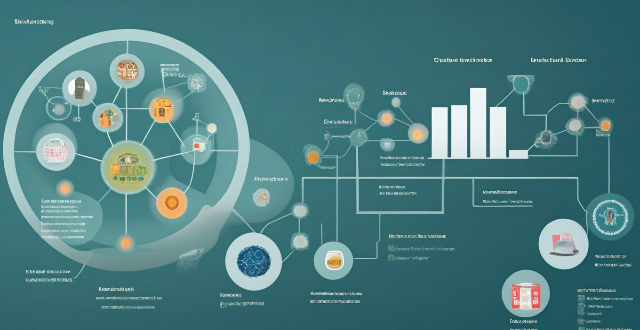
What are the requirements for obtaining consent under data protection laws ?
To obtain valid consent under data protection laws, organizations must adhere to specific requirements. These include providing clear and concise information about the data processing activities, ensuring that consent is freely given without pressure or coercion, making the consent specific and unambiguous for each purpose of data processing, informing individuals about their rights under data protection laws, and maintaining ongoing transparency and open communication. By following these guidelines, organizations can protect individuals' rights and privacy while building trust with their customers.

What happens to my data after I recycle my electronic devices ?
When you recycle your electronic devices, several stepsWhen you recycle your electronic devices, several steps data is securely erased several steps are taken to ensure your data is securely erased and the device is properly disposed of. This includes data erasure, disassembly, recycling, reuse and donation, and final disposal. Recycling helps protect your personal data and reduces environmental impact by conserving resources and reducing waste.

**Is my data safe with iCloud's privacy features ?
iCloud, Apple's cloud storage service, offers several privacy and security features to protect user data. These include Private Relay for anonymous browsing, end-to-end encryption for secure transmission, two-factor authentication for account security, tracking prevention for apps and websites, data breach notifications, encrypted cloud storage, privacy reports, password security monitoring, child safety features, and regular security updates. While these features provide robust protection, users should still practice good digital hygiene to further safeguard their data.

How does data encryption affect computer performance ?
Data encryption is crucial for securing data but can affect computer performance by increasing processor load, memory usage, disk I/O, network latency, and reducing battery life.